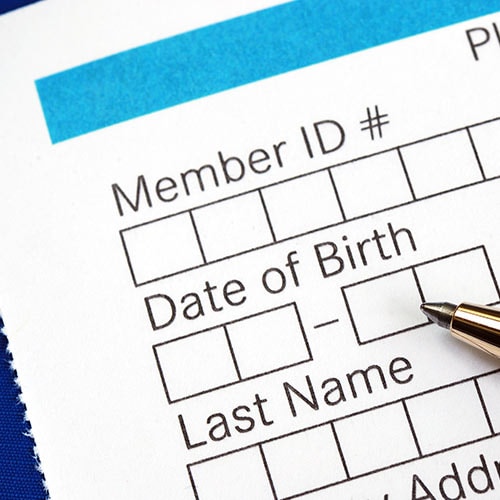You have a few things to do as your children spread their wings and prepare to leave the nest. You’ll need to get them a copy of “Oh, the Places You’ll Go.” You should consider sitting with them and having an open conversation about how often you want them to call or visit home. It might be a good idea to check in on how much they really know about doing their own laundry.
And, equally as important, it's a good idea to pass along some grown-up facts about navigating the digital world securely. Today, we’re providing you with some advice to help your kids protect their online identities as they embark on their independent journeys.
Understand public wifi stranger danger
Public wifi networks can be as treacherous as they are convenient. Arm your kids with the knowledge to stay safe while using open networks:
- Teach them how to find and favor encrypted networks. Networks with security protocols like WPA2 and WEP offer more secure connections than those that don’t require a password to connect.
- Be mindful of browsing habits. Advise your kids to avoid conducting sensitive transactions, such as banking or sharing personal information, while connected to any public wifi. Remind them that hackers can intercept their data.
- Use Virtual Private Networks (VPN).: Inform them about VPN services that encrypt their internet traffic, providing an extra layer of security, especially on unfamiliar and unsecured networks.
Enabling 2FA For Accounts
Passwords alone may not be enough to protect online accounts. Introduce your kids to the concept of Multi-Factor Authentication (MFA) as an essential security measure:
- Walk through how to enable and use MFA: Passwords may not be enough to keep them protected from child identity theft, especially for critical accounts like email, social media, and banking. Explain how requiring a multi-step verification process using an authenticator or biometric verification not only protects them, but can alert them if they’re the target of attempted identity theft.
- Stress the importance of uniqueness: Remind them to use different custom passwords for each online account to prevent a cascading effect where a single stolen or hacked password can open all of their sensitive accounts.
Keep your PII to Yourself
Teaching your kids to guard their Personally Identifiable Information (PII) is vital for their online safety:
- Discourage oversharing: Advise them to avoid posting sensitive data like their full address or phone number, and especially be cautious about any site requesting their social security number or birthdate. Explain how this information can be exploited by malicious actors to swipe their identity.
- Teach healthy skepticism: With new experiences come new friends. Instill a sense of caution regarding friend or connection requests from unfamiliar individuals. Encourage them to scrutinize connection requests from unfamiliar profiles to avoid potential impersonation.
- Never ignore the privacy settings: Teach them to regularly review and adjust the privacy settings on their social media accounts, enabling them to control who can see their profile, their posts, and the information they reveal when they share their lives socially.
Credit Card? Get Credit Monitoring Too
As your kids enter adulthood, financial responsibility becomes a priority. There’s a lot to be gained by adopting credit monitoring as part of their online lives:
- Early detection of fraud: Explain how credit monitoring and identity theft protection can notify them of suspicious changes to their credit report, providing an early warning if someone attempts to open accounts in their name.
- Mitigating identity theft: Emphasize that by actively monitoring credit and accounts helps enable them to respond immediately, minimizing potential damage to their financial permanent record.
- Promote financial responsibility: Share the value of keeping an eye on their credit rating, enabling them to build, improve, and maintain their credit over time. This prepares them for future adult endeavors like renting an apartment or buying a car.
These are the tips some of us wish our parents had shared with us when we were leaving the nest, and we hope they’ll help you foster an identity-safety minded young adult. By imparting knowledge about secure networks, multi-factor authentication, the significance of protecting personal information, and the benefits of credit monitoring, you empower them to navigate the digital realm confidently and responsibly. As we’re sure you know, a little guidance, even for online safety, can go a long way.
If you want to learn more, try these additional articles on identity theft protection.
Editor’s note: Our articles provide educational information. LifeLock offerings may not cover or protect against every type of crime, fraud, or threat we write about.
Start your protection,
enroll in minutes.
LifeLock is part of Gen – a global company with a family of trusted brands.
Copyright © 2026 Gen Digital Inc. All rights reserved. Gen trademarks or registered trademarks are property of Gen Digital Inc. or its affiliates. Firefox is a trademark of Mozilla Foundation. Android, Google Chrome, Google Play and the Google Play logo are trademarks of Google, LLC. Mac, iPhone, iPad, Apple and the Apple logo are trademarks of Apple Inc., registered in the U.S. and other countries. App Store is a service mark of Apple Inc. Alexa and all related logos are trademarks of Amazon.com, Inc. or its affiliates. Microsoft and the Window logo are trademarks of Microsoft Corporation in the U.S. and other countries. The Android robot is reproduced or modified from work created and shared by Google and used according to terms described in the Creative Commons 3.0 Attribution License. Other names may be trademarks of their respective owners.





